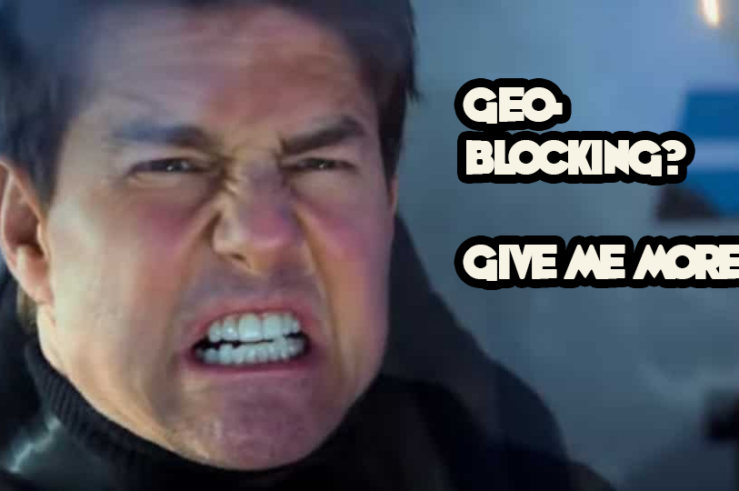Showing archive for: “Intellectual Property”
The Problem of Data Property Rights
Policy discussions about the use of personal data often have “less is more” as a background assumption; that data is overconsumed relative to some hypothetical optimal baseline. This overriding skepticism has been the backdrop for sweeping new privacy regulations, such as the California Consumer Privacy Act (CCPA) and the EU’s General Data Protection Regulation (GDPR). ... The Problem of Data Property Rights
Platform Self-Preferencing Can Be Good for Consumers and Even Competitors
Critics of big tech companies like Google and Amazon are increasingly focused on the supposed evils of “self-preferencing.” This refers to when digital platforms like Amazon Marketplace or Google Search, which connect competing services with potential customers or users, also offer (and sometimes prioritize) their own in-house products and services. The objection, raised by several ... Platform Self-Preferencing Can Be Good for Consumers and Even Competitors
How Antitrust Regulators Could Use the ‘Perpetual Inventory Method’ to Value R&D
The slew of recent antitrust cases in the digital, tech, and pharmaceutical industries has brought significant attention to the investments many firms in these industries make in “intangibles,” such as software and research and development (R&D). Intangibles are recognized to have an important effect on a company’s (and the economy’s) performance. For example, Jonathan Haskel ... How Antitrust Regulators Could Use the ‘Perpetual Inventory Method’ to Value R&D
How FTC v. Qualcomm Led to the Nvidia-Arm Acquisition
In a constructive development, the Federal Trade Commission has joined its British counterpart in investigating Nvidia’s proposed $40 billion acquisition of chip designer Arm, a subsidiary of Softbank. Arm provides the technological blueprints for wireless communications devices and, subject to a royalty fee, makes those crown-jewel assets available to all interested firms. Notwithstanding Nvidia’s stated ... How FTC v. Qualcomm Led to the Nvidia-Arm Acquisition
The DOJ’s Antitrust Case Against Google: A Tough Slog, but Maybe an Intriguing Possibility?
The U.S. Department of Justice’s (DOJ) antitrust case against Google, which was filed in October 2020, will be a tough slog.[1] It is an alleged monopolization (Sherman Act, Sec. 2) case; and monopolization cases are always a tough slog. In this brief essay I will lay out some of the issues in the case and raise ... The DOJ’s Antitrust Case Against Google: A Tough Slog, but Maybe an Intriguing Possibility?
The Forgotten Strand of the Anti-Monopoly Tradition in Anglo-American Law
Admirers of the late Supreme Court Justice Louis Brandeis and other antitrust populists often trace the history of American anti-monopoly sentiments from the Founding Era through the Progressive Era’s passage of laws to fight the scourge of 19th century monopolists. For example, Matt Stoller of the American Economic Liberties Project, both in his book Goliath ... The Forgotten Strand of the Anti-Monopoly Tradition in Anglo-American Law
COVID-19 Vaccines Show the Patent System Works
With the COVID-19 vaccine made by Moderna joining the one from Pfizer and BioNTech in gaining approval from the U.S. Food and Drug Administration, it should be time to celebrate the U.S. system of pharmaceutical development. The system’s incentives—notably granting patent rights to firms that invest in new and novel discoveries—have worked to an astonishing ... COVID-19 Vaccines Show the Patent System Works
Geo-Blocking: What is it Good For… A Surprising Amount, Actually.
The European Court of Justice issued its long-awaited ruling Dec. 9 in the Groupe Canal+ case. The case centered on licensing agreements in which Paramount Pictures granted absolute territorial exclusivity to several European broadcasters, including Canal+. Back in 2015, the European Commission charged six U.S. film studios, including Paramount, as well as British broadcaster Sky ... Geo-Blocking: What is it Good For… A Surprising Amount, Actually.
Big Tech but Bigger Ideas
As an academic working at the intersection of economics, law, and innovation, I was excited to see Nicolas Petit apply an interdisciplinary approach to investigate big tech in the digital economy. Working across law, business, and engineering has taught me the importance of bringing together different theoretical perspectives and mindsets to address complex issues. [RL1] Below ... Big Tech but Bigger Ideas
Antitrustifying Contract: Thoughts on Epic Games v. Apple and Apple v. Qualcomm
In the hands of a wise philosopher-king, the Sherman Act’s hard-to-define prohibitions of “restraints of trade” and “monopolization” are tools that will operate inevitably to advance the public interest in competitive markets. In the hands of real-world litigators, regulators and judges, those same words can operate to advance competitors’ private interests in securing commercial advantages ... Antitrustifying Contract: Thoughts on Epic Games v. Apple and Apple v. Qualcomm
It’s All About What We Don’t Know
Nicolas Petit’s Big Tech and the Digital Economy: The Moligopoly Scenario provides an insightful and valuable antidote to this unease. While neither Panglossian nor comprehensive, Petit’s analysis persuasively argues that some of the concerns about the platforms are misguided or at least overstated. As Petit sees it, the platforms are not so much monopolies in ... It’s All About What We Don’t Know
A Law & Economics Perspective on Ruth Bader Ginsburg
With the passing of Justice Ruth Bader Ginsburg, many have already noted her impact on the law as an advocate for gender equality and women’s rights, her importance as a role model for women, and her civility. Indeed, a key piece of her legacy is that she was a jurist in the classic sense of ... A Law & Economics Perspective on Ruth Bader Ginsburg











